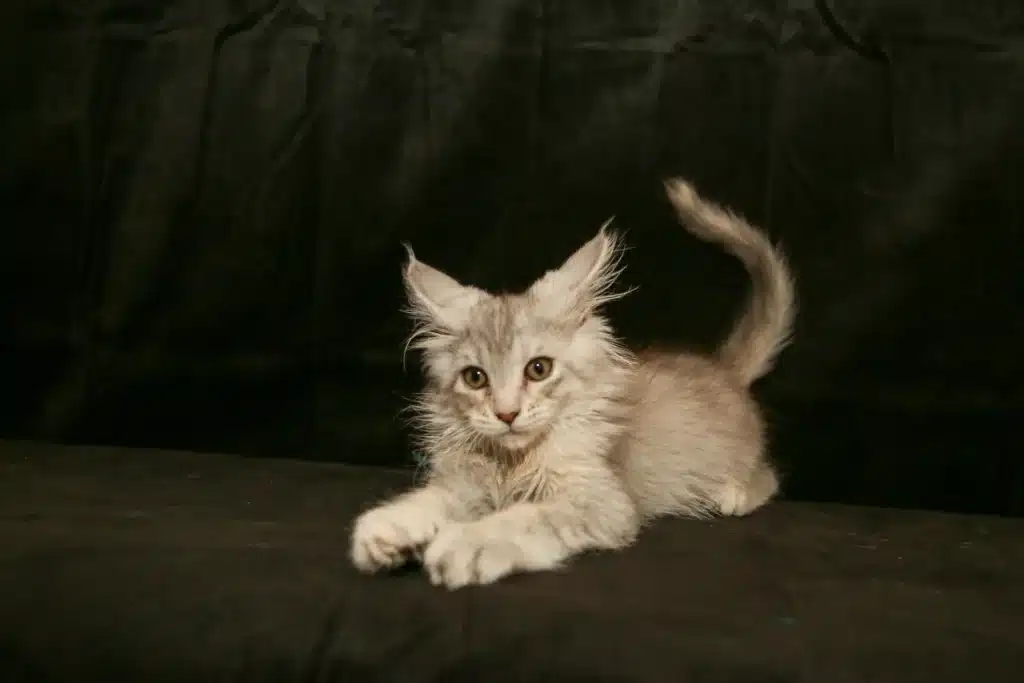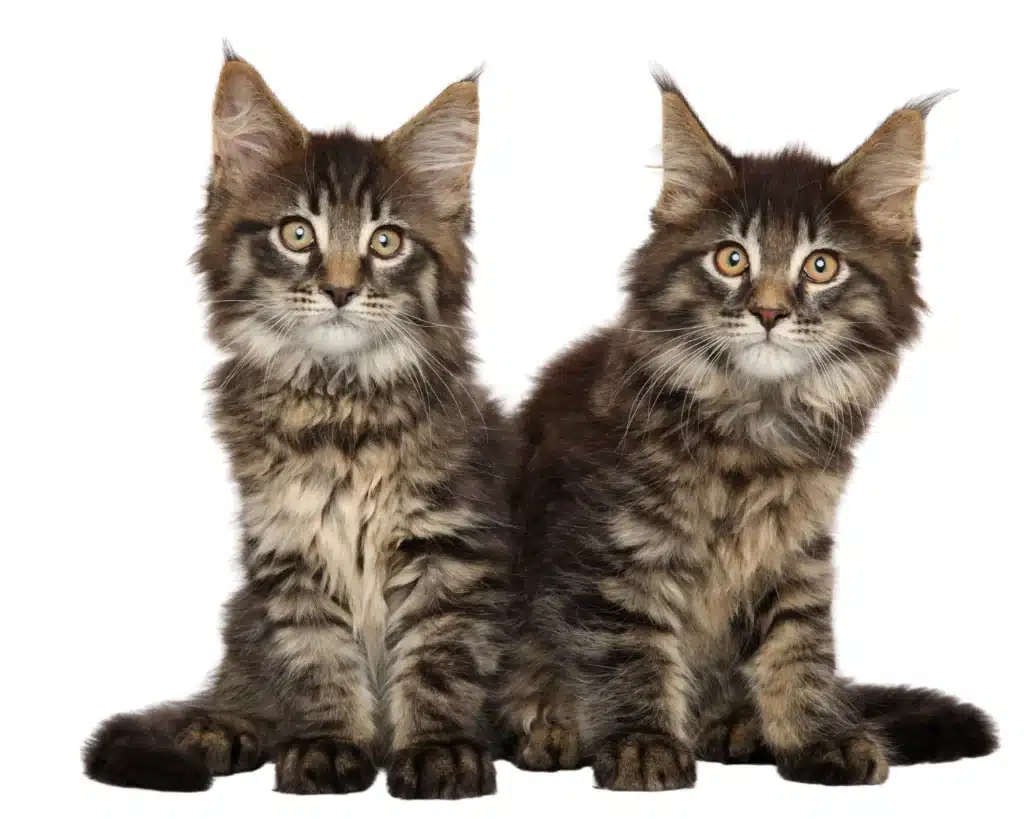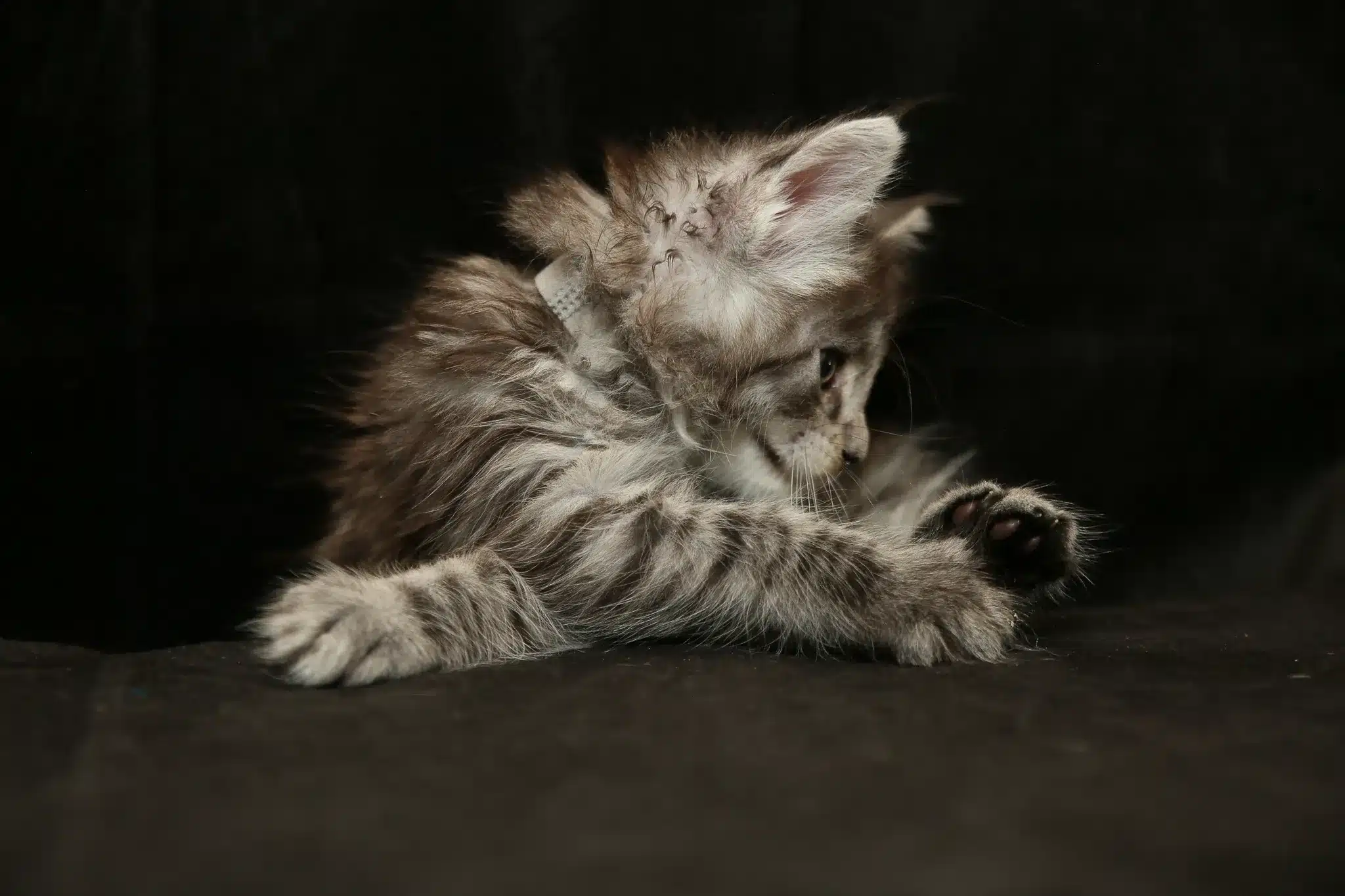
Maine Coon Health: Common Breed Concerns
Maine Coon cats combine gentle temperaments and striking size with a predisposition to specific health issues, making proactive care essential for long-term wellbeing. In this guide, you’ll discover the most prevalent breed-specific conditions, diagnostic strategies, preventative measures, ethical breeding practices, and wellness routines that support vitality. We’ll explore genetic diseases like hypertrophic cardiomyopathy (HCM) and hip dysplasia, review screening protocols for breeders, highlight nutrition and dental care, and explain how Bellspurr’s TICA-registered cattery ensures healthy, well-socialized kittens. By understanding each concern and adopting targeted solutions, Maine Coon owners can enjoy a thriving feline companion for 12–15 years or more.
What Are the Most Common Health Problems in Maine Coon Cats?
Maine Coons face a handful of core health challenges driven by genetics, size, and lifestyle, all of which benefit from early detection and responsible breeding. Tackling these issues through screening, management, and veterinarian collaboration supports both lifespan and quality of life.
| Condition | Main Feature | Impact on Cat |
|---|---|---|
| Hypertrophic Cardiomyopathy (HCM) | Thickening of heart muscle walls | Reduced cardiac output and exercise intolerance |
| Hip Dysplasia | Abnormal hip joint formation | Painful mobility and lameness |
| Spinal Muscular Atrophy (SMA) | Motor neuron degeneration | Progressive muscle weakness |
| Polycystic Kidney Disease (PKD) | Fluid-filled kidney cysts | Declining kidney function |
| Obesity | Excess body fat accumulation | Elevated joint stress and diabetes risk |
| Dental Disease | Gum inflammation and infection | Tooth loss and systemic inflammation |
Identifying these conditions early through genetic testing and routine check-ups lays the foundation for targeted care and transitions into diagnostic protocols for individual concerns.
Which genetic diseases frequently affect Maine Coons?
Inherited mutations in key genes predispose Maine Coons to several breed-specific disorders. Spinal muscular atrophy arises from an autosomal mutation causing motor neuron loss, while polycystic kidney disease involves recessive alleles creating cysts that compromise renal filtering. For more information on health matters, visit understanding maine coon health issues.
An ~140-kb deletion associated with feline spinal muscular atrophy implies an essential LIX1 function for motor neuron survival
This research identified a significant ~140-kilobase deletion on feline chromosome 1, encompassing the LIX1 gene, as the genetic cause of Spinal Muscular Atrophy (SMA) in Maine Coon cats. The study established that SMA is inherited as an autosomal recessive trait, leading to the degeneration of motor neurons and subsequent muscle weakness.
This study directly supports the article’s explanation of Spinal Muscular Atrophy (SMA) as an inherited genetic disease in Maine Coons, detailing its genetic basis and mode of inheritance.
Responsible breeders screen parent cats to reduce allele prevalence and ensure robust kitten health.
These genetic conditions underscore the importance of structured screening, guiding us naturally to examine how common orthopedic and cardiac disorders manifest in this majestic breed.
How do Hypertrophic Cardiomyopathy (HCM) and Hip Dysplasia impact Maine Coons?
HCM triggers ventricular wall thickening that impairs cardiac filling and predisposes to arrhythmias, leading to fatigue and sudden collapse in severe cases. Hip dysplasia results from abnormal hip socket formation, causing pain, reduced activity, and early arthritis. Both conditions highlight the need for breed-specific monitoring and management to preserve mobility and organ function.
Structured evaluation of these disorders informs targeted diagnostic protocols, which we will detail in the following sections.
What are lesser-known conditions like Spinal Muscular Atrophy (SMA) and Polycystic Kidney Disease (PKD)?
Spinal muscular atrophy manifests in kittens as muscle weakness, tremors, and difficulty nursing, with progression often stabilizing by adulthood but leaving residual deficits. PKD may remain silent until middle age, when signs like excessive thirst, weight loss, and poor appetite emerge. Early genetic testing and ultrasound examinations allow preemptive planning and supportive interventions.
These insights into genetic disorders lead naturally into obesity and dental disease concerns, which compound mechanical and systemic strain on Maine Coons.
How does obesity and dental disease affect Maine Coon health?
Excess weight amplifies joint stress, accelerating hip dysplasia and osteoarthritis, while fat deposits around the heart complicate HCM management. Meanwhile, periodontal disease fosters chronic inflammation that can spread to organs, increasing risks of endocarditis and kidney damage. Balanced nutrition and daily oral care mitigate these threats, reinforcing overall health readiness.
By understanding the spectrum of common problems, owners can partner with breeders and veterinarians to implement comprehensive diagnostic and wellness strategies.
How Can You Identify and Diagnose Hypertrophic Cardiomyopathy (HCM) in Maine Coons?

Hypertrophic Cardiomyopathy (HCM) is a hereditary heart muscle disease marked by thickened ventricles that compromise pumping performance. Echocardiographic screening and genetic assays enable early detection, improving outcomes through timely medical management. When identified before clinical signs appear, targeted therapies enhance quality of life and extend healthy years.
What causes HCM and why are Maine Coons predisposed?
A mutation in the MYBPC3 gene drives excessive myocardial hypertrophy in Maine Coons, with breed-specific alleles increasing susceptibility. This genetic predisposition becomes more pronounced as cats mature, emphasizing the advantage of screening breeding cats to interrupt transmission. Ongoing research continues to refine genotype–phenotype correlations for improved risk stratification.
A cardiac myosin binding protein C mutation in the Maine Coon cat with familial hypertrophic cardiomyopathy
This foundational research identified a specific single base pair change (G to C) in the feline MYBPC3 gene in Maine Coon cats affected by hypertrophic cardiomyopathy (HCM). This mutation computationally alters the protein conformation, leading to sarcomeric disorganization and establishing a genetic cause for familial HCM in this breed.
This study directly supports the article’s claim that a mutation in the MYBPC3 gene is a primary driver of hypertrophic cardiomyopathy in Maine Coon cats, explaining their genetic predisposition.
Genetic insight naturally prompts consideration of observable symptoms, which guides owners and veterinarians toward formal diagnostic testing.
What are the key symptoms and signs of HCM in Maine Coons?
- Lethargy following play or exercise
- Rapid or labored breathing at rest
- Tachycardia detected during veterinary exam
- Sudden collapse or hind limb paralysis in severe cases
Because many cats remain asymptomatic, breed-specific screening protocols are essential for uncovering subclinical disease.
Which diagnostic tests confirm HCM in Maine Coons?
- Echocardiogram — ultrasound imaging of ventricular wall thickness
- Genetic assay — PCR-based detection of MYBPC3 mutation
- Electrocardiogram (ECG) — assessment of heart rhythm abnormalities
Timely use of these diagnostics enables proactive treatment and informed breeding decisions.
What treatment and management options are available for HCM?
- Beta-blockers to reduce heart rate and wall stress
- ACE inhibitors to lower blood pressure
- Diuretics for fluid management in congestive cases
- Periodic re-evaluation to adjust therapy
Lifestyle adjustments, such as minimizing stress and monitoring activity levels, further enhance response to treatment.
How can HCM be prevented through genetic testing and breeding practices?
Preventing HCM starts with pre-breeding genetic screening of all Maine Coon breeding cats for the MYBPC3 mutation. Selective pairing of mutation-negative individuals disrupts transmission and gradually reduces disease prevalence. Bellspurr applies these protocols rigorously, offering a one-year genetic replacement guarantee and comprehensive health records for every kitten.
Effective cardiac risk reduction transitions into attention on skeletal health, including hip dysplasia.
What Should You Know About Hip Dysplasia in Maine Coon Cats?
Hip dysplasia is an orthopedic condition in which an improperly formed hip socket causes joint instability and painful degeneration. Early recognition and intervention—through weight control, anti-inflammatories, or surgical correction—preserve mobility. Routine orthopedic screening and responsible breeding markedly reduce prevalence in large-breed cats.
Demographics of hip dysplasia in the Maine Coon cat
A comprehensive demographic study utilizing data from the Orthopaedic Foundation for Animals registry revealed an overall prevalence of feline hip dysplasia (FHD) in Maine Coon cats to be 24.9%. The study also indicated that the condition was slightly more prevalent in males (27.3%) than females (23.3%) and that bilateral cases exhibited more severe dysplasia.
This research provides verifiable statistics and demographic insights into the prevalence and characteristics of hip dysplasia in Maine Coon cats, supporting the article’s discussion of this common orthopedic concern.
What causes hip dysplasia and which risk factors affect Maine Coons?
Genetic predisposition combines with rapid growth and excess body weight to deform the hip joint. Large body mass places extra load on developing cartilage, while inherited acetabular shallow sockets predispose to subluxation. Recognizing these risk factors guides preventive measures in both breeding and kitten rearing.
How can you recognize symptoms of hip dysplasia in your Maine Coon?
- Lameness affecting one or both hind limbs
- Reluctance to jump or climb stairs
- Swaying gait or “bunny hopping”
- Thigh muscle atrophy from disuse
Early signs warrant radiographic examination to confirm joint changes.
What diagnostic methods are used for hip dysplasia?
- Orthopedic radiographs — standard X-rays of hip joints
- Computed tomography (CT) — detailed cross-sectional imaging
- Physical manipulation tests — assessing joint laxity under sedation
Combining imaging and clinical tests enables a definitive diagnosis.
What treatments and lifestyle changes help manage hip dysplasia?
- Weight management through portion-controlled diet
- Non-steroidal anti-inflammatory drugs (NSAIDs) to reduce pain
- Physical therapy to maintain muscle mass
- Surgical options such as femoral head ostectomy or total hip replacement
These measures restore mobility and comfort when applied early.
How does responsible breeding reduce hip dysplasia risk?
Breeders perform hip scoring radiographs on prospective parent cats to identify and exclude affected individuals. Bellspurr requires OFA-equivalent clearance for hip conformation and prioritizes mating between scores within normal range. Over successive generations, this selective approach minimizes dysplasia prevalence.
As breeding protocols guard against skeletal conditions, genetic health testing protocols broaden that protective net.
What Are Genetic Health Testing Protocols for Maine Coon Breeders?
Which genetic diseases are routinely tested in Maine Coon breeding cats?
- Hypertrophic Cardiomyopathy (HCM) – MYBPC3 mutation
- Spinal Muscular Atrophy (SMA) – SMN1 variant
- Polycystic Kidney Disease (PKD) – PKD1 mutation
- Pyruvate Kinase Deficiency (PKDef) – PKLR gene defect
- Factor XI Deficiency – F11 gene variant
How does genetic testing improve kitten health and breed standards?
Early identification of carriers allows for strategic breeding decisions that reduce disease incidence over time. Testing fosters transparency, strengthens pedigree integrity, and affirms commitment to animal welfare. As genetic risk declines, overall longevity and vitality improve across the population.
What testing methods and labs are used for Maine Coon genetic screening?
- PCR-based assays for specific point mutations
- Microarray panels covering multiple gene variants
- Third-party veterinary genetics labs accredited for feline health testing
Labs such as Wisdom Panel and specialized university-affiliated facilities deliver accurate, certified results.
How does Bellspurr implement genetic testing and health guarantees?
Bellspurr tests every breeding cat through an accredited lab before each mating cycle. Results are published in pedigree documents and shared with prospective buyers. All kittens arrive with a one-year genetic replacement guarantee, a five-year extended health warranty, and pre-paid pet insurance, reflecting Bellspurr’s ethical breeding commitment.
What questions should prospective buyers ask breeders about health testing?
- Confirmation of tested mutations and individual results
- Copies of certificates from an accredited genetics lab
- Details on health guarantee terms and insurance coverage
- Evidence of long-term breeding outcomes for screened lines
How Can Preventative Care and Wellness Support Maine Coon Health?
What is the best nutrition plan for maintaining Maine Coon health?
- High-quality protein sources like salmon or chicken
- Controlled caloric intake to maintain ideal body condition
- Essential fatty acids (EPA/DHA) for coat health and anti-inflammation
- Limited carbohydrates to reduce obesity risk
Consistent feeding schedules and measured portions reinforce healthy weight and energy levels.
How can dental care prevent common oral diseases in Maine Coons?
Daily tooth brushing with feline-safe toothpaste, supplemented by dental treats, disrupts plaque formation and reduces gingivitis. Regular professional cleanings under sedation remove calculus in hard-to-reach areas. Effective oral hygiene decreases systemic inflammatory burden and preserves tooth integrity.
Good dental health habits align with joint and heart disease management by lowering overall inflammatory load.
What strategies help manage and prevent obesity in Maine Coons?
- Portion-controlled feeding with measured scoops
- Scheduled play sessions to boost activity
- Interactive feeding toys to slow intake and encourage exercise
Preventing excessive weight supports orthopedic and cardiovascular wellbeing throughout life.
Why are routine veterinary visits essential for Maine Coon wellbeing?
- Early detection of systolic murmurs or arrhythmias
- Orthopedic palpation and range-of-motion assessment
- Biannual blood panels to screen kidney and liver function
- Vaccination updates and parasite prevention
Regular professional oversight ensures evolving breed-specific risks are managed proactively.
How do vaccinations and wellness plans contribute to long-term health?
Core vaccines guard against panleukopenia, calicivirus, and rhinotracheitis, while rabies protection meets legal requirements. Wellness plans bundle preventive services—vaccinations, lab work, dental cleanings—and spread costs, promoting comprehensive care adoption. When integrated with genetic and diagnostic protocols, vaccinations complete the preventative framework.
How Do Ethical Breeding Practices Influence Maine Coon Health?

What defines a reputable Maine Coon breeder?
- Holds active TICA registration and follows club health guidelines
- Publishes pedigrees and health test results openly
- Provides a structured socialization program in a home environment
- Offers clear health guarantees and ongoing support
How does Bellspurr ensure health through pedigree monitoring and transparency?
Bellspurr maintains detailed lineage records tracing European bloodlines and rare colors like black silver and blue. All breeding cats undergo orthopedic and genetic screening before producing litters. Comprehensive health logs accompany each kitten, reinforcing trust and accountability.
What health guarantees and insurance plans does Bellspurr offer?
- A one-year genetic health replacement guarantee
- A five-year extended health warranty
- Pre-paid pet insurance for the first year
- A comprehensive wellness plan at no additional cost
How does socialization and temperament relate to overall kitten health?
Early, consistent handling and home-based care develop secure, confident kittens with lower stress responses. Reduced anxiety supports immune function and accelerates recovery from minor illnesses. Socialized cats integrate more quickly into families, creating stronger human-cat bonds that promote attentive care.
Why is choosing a TICA-registered breeder important for health assurance?
TICA accreditation enforces adherence to breed standards, health testing requirements, and ethical sales practices. Registration provides oversight, necessitates transparent record-keeping, and affirms the breeder’s commitment to demonstrable quality. Partnering with a TICA-registered cattery like Bellspurr maximizes the likelihood of acquiring a genetically sound, well-adjusted kitten.
What Are Frequently Asked Questions About Maine Coon Health Concerns?
| Topic | Typical Finding | Recommended Action |
|---|---|---|
| Lifespan | 12–15 years with optimal care | Balanced diet, genetic screening, regular exams |
| Genetic Disease Onset | Signs may appear between 1–3 years | Initiate early cardiac and genetic tests |
| Heart or Joint Indicators | Breathing difficulty, limping or stiffness | Seek veterinary evaluation immediately |
| Screening Frequency | Annual echocardiogram and orthopedic radiographs | Follow breeder and vet screening schedules |
| Management of Diagnosed Conditions | Medication, physical therapy, weight control | Adhere to treatment plans and wellness checks |
Recognizing these key concerns empowers owners to implement targeted measures and solidify a health-focused partnership with their veterinary team.
Maine Coon health hinges on informed vigilance, comprehensive testing, and collaborative care. By choosing kittens from ethical, health-driven breeders and following structured wellness protocols, families can enjoy the majestic presence of a Maine Coon companion for many active, affectionate years. If you’re ready to welcome a genetically screened, well-socialized Maine Coon kitten into your home, contact Bellspurr for details on upcoming litters, health guarantees, and adoption guidance.

